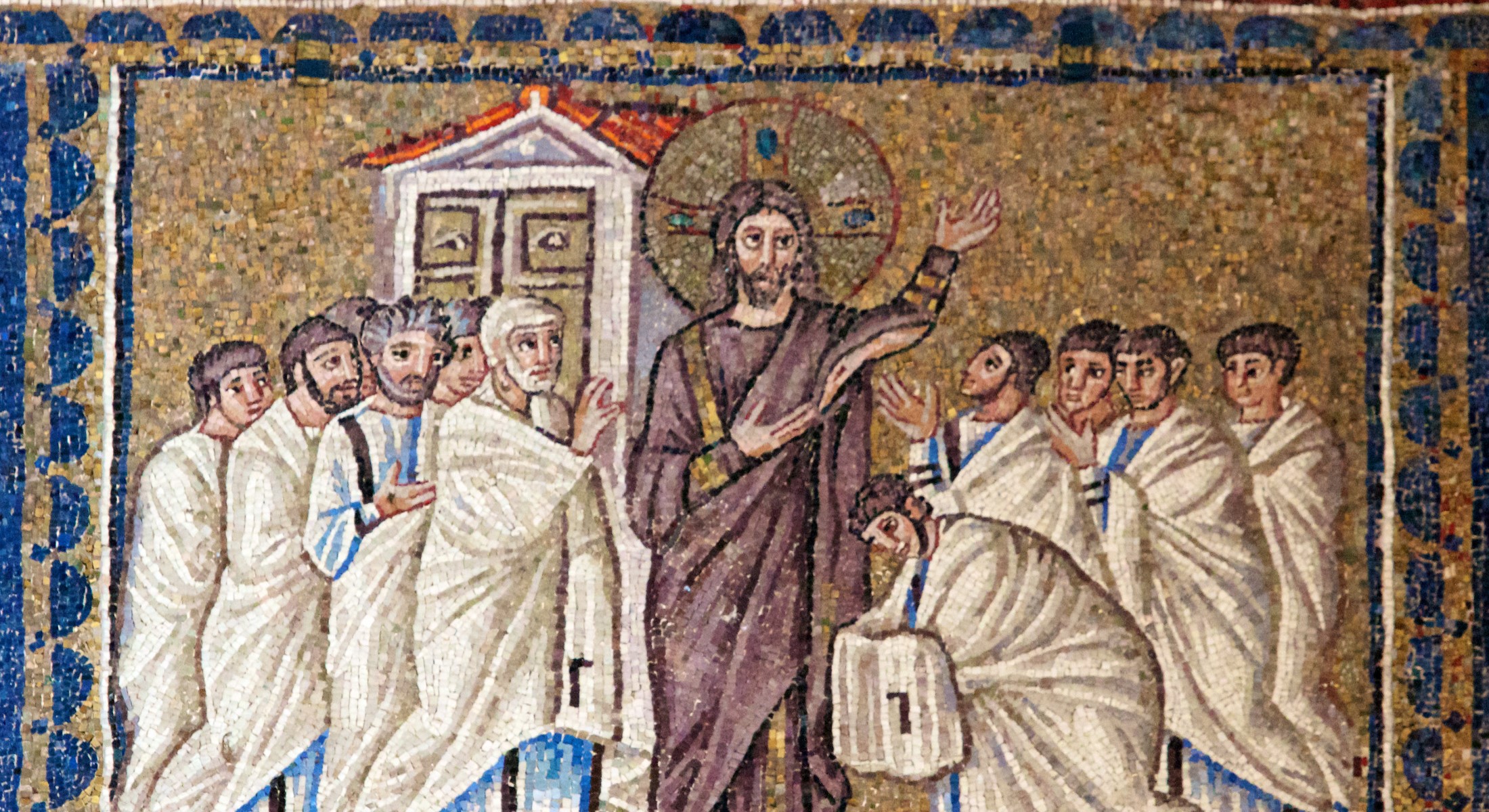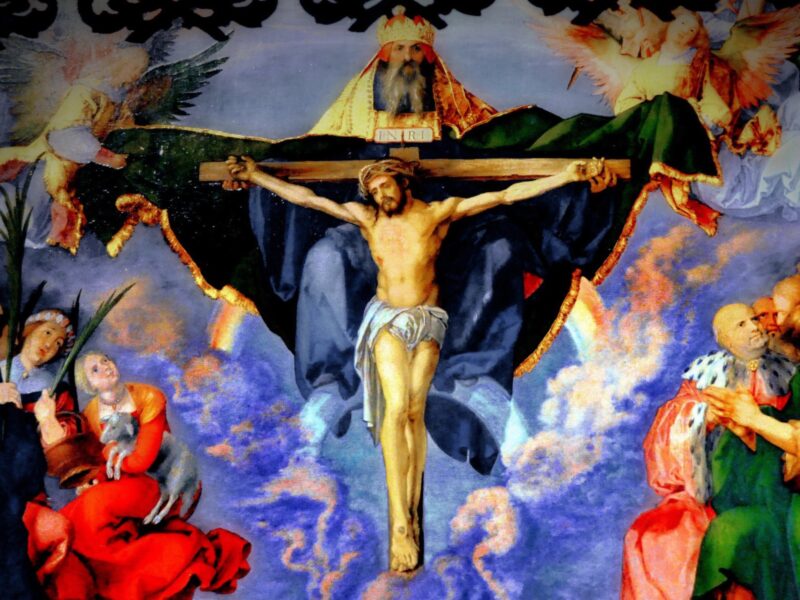
Named by Angels
Seventh Sunday of Easter. Fr Peter Harries preaches on the mission of the Church in the world.
Recently I was given a T-shirt reading ‘Be careful or you’ll end up in my sermon’. In today’s sermon we can mention from our first reading, Peter, Andrew, James & John, Philip, Tomas, Bartholomew and Matthew, James son of Alphaeus, Simon the Zealot & Jude son of James, with Mary, other women and Jesus’ brothers. Some people named, some not named here in the book of Acts. A deliberate downgrading of the women who followed Jesus and supported the apostolic band? Perhaps? What about Jesus’ unnamed brothers – whatever relationship they might be to Jesus? Names and memory of these relatives downplayed as leadership in the early church didn’t coalesce around Jesus’ relatives. These named and unnamed early followers of Jesus gathered in continuous prayer in the upper room after the Ascension, after Jesus had been taken from them once again. The upper room where the Last Supper had taken place.
The gospel reading today, sometimes referred to as part of the ‘high priestly prayer’ of Jesus is set at the Last Supper in that upper room. The disciples prayed there, just as we pray in church where the eucharist, instituted at the Last Supper, is celebrated regularly.
In the book of Deuteronomy Moses who is the giver of the Law, at the end of his life, first blesses God and then gives a final blessing to his disciples, the twelve tribes of Israel. So now Jesus first blesses God, asking for the glory that was his before the foundation of the world. Then Jesus blesses those gathered at the Last Supper, for they are God’s people and are given to Jesus and have kept God’s word. Jesus the new and better Moses, the giver of a new law. The apostles have been given a new teaching and have truly accepted it as coming from God. Just as of old God had sent Moses, so now God sends his Son Jesus. Jesus tells the apostles, and also of course us, that those who believe in Jesus have eternal life and that they and we know the one true God. How? By the free gift of the Father through the glorification of his son Jesus. A glorification that involves his suffering, death, resurrection, ascension and the coming of the Holy Spirit.
But also in this gospel passage, and initially it might seem scandalously, Jesus says that he is not praying for the world, but rather for those people God has given him. What can we make of this, given that so many other passages in the gospel invite us or perhaps better tell us to love our neighbour? In the theology of John’s Gospel the world is the place and the people who have rejected God’s messenger, those who have rejected light and truth, those who have rejected salvation. In John’s Gospel often things are presented simply as good or evil, true or false, of God or not of God. Throughout the Gospel John is always inviting us to choose God, and Jesus Christ who was sent by God that we might live in truth and live in glory. So Jesus here is praying that we might love our neighbour and by such fruitful life, God is glorified.
St. Peter in our second reading invites to be glad if we can share in the sufferings of Christ, for if we do so, we will have a greater gladness when Jesus’ glory is fully revealed. Misunderstanding and persecution, contempt and derision will be ours when we choose to love our neighbour and not to indulge in self-promotion and self-centeredness. We bear the name of Christ, we reject evil and often suffer with Christ. Truly our sufferings unite us to Christ for salvation.
Our gospel passage ends with Jesus saying that he is coming to the Father, as he does after the Last Supper and the Ascension. Our Christian hope is that living out the truth and loving our neighbour, we will be filled with the Holy Spirit and will belong to God. So we shall be named, not so much in a sermon, but by the angels of judgement who find our names, like the names Mary and those mentioned in our first reading, along with the names of countless others, written not on a T-shirt but rather in the Book of Life.
Readings: Acts 1:12-14 | 1 Peter 4:13-16 | John 17:1-11
Image: Jesus appears to the disciples in the upper room – detail from a mosaic at Sant’Apollinare Nuovo, Ravenna, photographed by Nick Thompson (CC BY-NC-SA 2.0)


